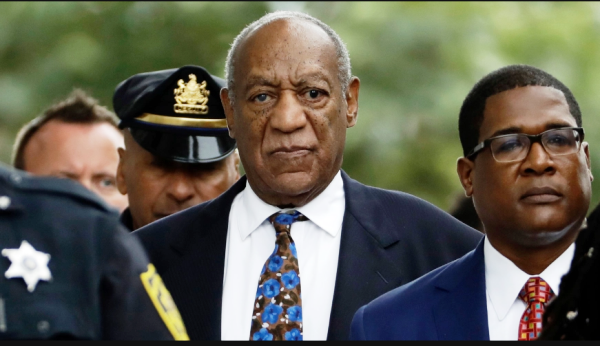American comedian and actor, Bill Cosby, 83, has been released from prison after the Pennsylvania Supreme Court overturned his 2018 sexual assault conviction, finding fault with the way prosecutors pursued a case against him after earlier declining to file charges.
Pennsylvania Department of Corrections spokesperson Maria Bivens said in a statement that Cosby “has been released.”
The state Supreme Court said Cosby cannot be retried on the same charges, though there is the potential that the overturn opinion could be appealed to the U.S. Supreme Court. But it’s highly that the nation’s highest court would even take the case.
Read Also: Russia won’t ban Facebook, Twitter, YouTube, others – Putin
Cosby was sentenced to three to 10 years in prison, and has been serving time at Pennsylvania’s State Correctional Institution at Phoenix.
He had been found guilty in his second trial for the 2004 rape of former Temple University employee Andrea Constand. Cosby has maintained that they engaged in consensual relations.
“Cosby’s convictions and judgment of sentence are vacated, and he is discharged,” the justices wrote in their opinion.
Still, it should not be forgotten that more than 60 women have claimed that Cosby drugged and assaulted them over the decades with a similar combo of pills and alcohol as used on Constand.
Some of those women were among the onlookers at the two trials and the sentencing hearing in the fall of 2018.
Additionally, Judge Steven O’Neill allowed current Montgomery County DA Kevin Steele in the second trial to have five other accusers, including ex-America’s Next Top Model judge Janice Dickinson, take the stand and tell their stories of being assaulted by once beloved Cosby.
Denied parole a month ago, Cosby has been fighting the conviction almost since the moment he was sentenced. Coming up short time and again and even failing to get early release because of the coronavirus, the comedian finally scored a win of sorts in June 2020 when the Pennsylvania’s Supreme Court agreed to hear his appeal on the rape conviction.
Conducted virtually in December due to the ongoing Covid-19 crisis and with Cosby absent, the 75-minute appeal hearing centered on prior testimony from five other women during the second trial, Fifth Amendment rights and a 2005 press release from the prior DA of Pennsylvania’s Montgomery County.
Back in the early years of the century, the then D.A.’s promise to Cosby to not press criminal charges on the assault on Constand ultimately lead to a multi-million dollar settlement with the basketball coach in a civil action.
Ultimately based on a technically, today’s divided PA Supreme Court ruling is certain to send a chill over the #MeToo movement
In the majority opinion, Justice David Wecht wrote, “when an unconditional charging decision is made publicly and with the intent to induce action and reliance by the defendant, and when the defendant does so to his detriment (and in some instances upon the advice of counsel), denying the defendant the benefit of that decision is an affront to fundamental fairness, particularly when it results in a criminal prosecution that was foregone for more than a decade. No mere changing of the guard strips that circumstance of its inequity.”
The justices found fault with the fact that in 2005, then-Montgomery County D.A. Bruce Castor, after investigating Constand’s claim, declined to prosecute, “thereby allowing Cosby to be forced to testify in a subsequent civil action, under penalty of perjury, without the benefit of his Fifth Amendment privilege against self-incrimination.”
“Unable to invoke any right not to testify in the civil proceedings, Cosby relied upon the district attorney’s declination and proceeded to provide four sworn depositions,” Wecht wrote. “During those depositions, Cosby made several incriminating statements.”
Castor’s successors, Wecht noted, “did not feel bound by his decision, and decided to prosecute Cosby notwithstanding that prior undertaking. The fruits of Cosby’s reliance upon D.A. Castor’s decision Cosby’s sworn inculpatory testimony were then used by D.A. Castor’s successors against Cosby at Cosby’s criminal trial.”
Current Montgomery County prosecutors have not responded to a request for comment. Castor went on to become solicitor general and acting attorney general in the state, and then into private practice. He served as the lead for Donald Trump’s defense team in the second impeachment trial in April.

